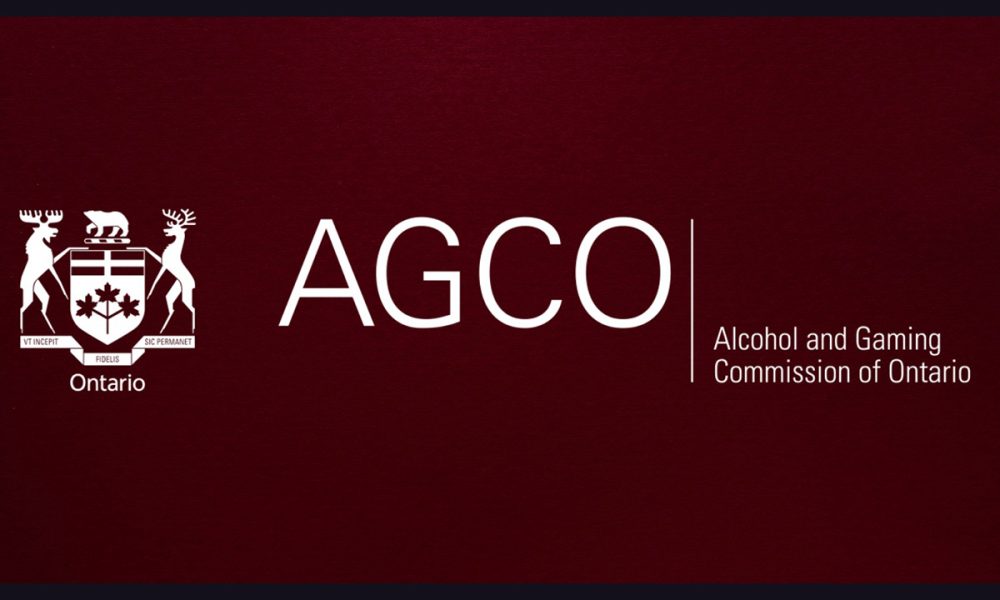

Canada
Why Nova Scotia Won’t Ban Problem Gamblers from Casinos
The Nova Scotia government won’t ban problem gamblers from going to the province’s casinos. The decision was announced on Monday, following an online survey in which the government asked Nova Scotians if it should ban people who don’t want to gamble from casinos and slot facilities. The government says 86 per cent of the 3,000 people who responded said no; 15 per cent said yes and one per cent didn’t know or refused to answer.
However, Health Minister Leo Glavine also said that, if a problem gambler has gambling problems, the matter should be dealt with through the justice system or addiction services.
A brief history of gambling in Canada
Gambling has been a part of Canadian culture for centuries, with many Canadians taking part in different forms of gambling including lotteries and casinos. However, as gambling becomes more accessible, an increasing number of Canadians are developing gambling problems. This led to the introduction of Bill C-290, which proposed stricter regulations on the industry to protect problem gamblers. The bill was passed unanimously by Parliament but was never fully implemented due to a lack of funding.
Gambling in Nova Scotia
Nova Scotia has long been known as the center of gambling in Canada and is home to over 1,000 slot machines. A recent push from anti-gambling groups to ban problem gamblers from entering casinos was dismissed by Premier Stephen McNeil as they believe it would be a violation of their freedom. In place of this, they have created a voluntary exclusion program that would allow people who are struggling with gambling addiction to voluntarily exclude themselves from casinos. Many online casinos that legally operate in Nova Scotia also welcome any one willing to bet.
Gambling addiction facts
Problem gambling is a serious and persistent public health problem. About 1-3% of the population has a gambling addiction, which means there are about 250,000 people in Canada who need help. It’s estimated that about 10% of the population gambles at any one time, but this doesn’t mean they’re all addicted to it.
Gambling disorder is considered an impulse control disorder like other impulse control disorders such as obsessive-compulsive disorder (OCD) and pathological gambling. Gambling disorder can be difficult to diagnose because gamblers may not be aware they have a problem until their life is impacted negatively by their behavior.
In general, provinces regulate casinos, but municipalities can create bylaws that prohibit or restrict casino development on their territory.
The connection between problem gamblers and casinos
Problem gamblers can be defined as people who spend an excessive amount of money on gambling or individuals who have trouble controlling their gambling behavior. There are many different factors that contribute to the development of a problem gambler, but it is often believed that spending time in a casino increases the risk for developing these behaviors.
Casinos are designed to make gambling more enticing by providing a variety of options and rewarding players with freebies. The layout of casinos contributes to this too – they are laid out so that slot machines and table games surround the player, which makes it difficult for them to leave without passing by even more gambling opportunities. The tendency of casinos to offer customers easy access to everything they want at any hour also encourages longer play sessions and worsens gambling addiction.
How can we solve this problem?
Nova Scotia should consider introducing a self-exclusion program that would allow people to voluntarily ban themselves from casinos. This would make sense because casinos are the only place problem gamblers can legally gamble. They also offer other forms of entertainment such as live music, movies, and restaurants.
Self-exclusion programs have proven effective in other countries with gambling addiction issues, so this could be a good way to stop problem gambling while allowing those who don’t have an issue to enjoy themselves.
Problem gamblers and online casino
Problem gamblers are no different than alcoholics or drug addicts, but the stigma around gambling addiction is much less. These people need help and support just like any other addict would. Banning them from casinos doesn’t mean they won’t continue to gamble; it just means they will do it in private and without help.
The government needs to focus on prevention and rehabilitation for this issue, not punishment. The focus should be on those who suffer from a gambling addiction rather than those who don’t. We know there’s going to be more at-risk populations if we don’t offer some sort of service, said Smith. If you’re doing harm reduction, then let’s look at those folks first.
In summary
Nova Scotia’s gambling regulator, the Alcohol and Gaming Authority of Nova Scotia (AGANS), has said that it will not ban problem gamblers from casinos. The decision comes after a recent report by the provincial government found that an estimated 11% of casino patrons are problem gamblers, up from 7% five years ago.
There is no evidence that banning these people from casinos would reduce their gaming activity. Rather than banning them, AGANS has chosen to implement a self-exclusion program where problem gamblers can voluntarily sign themselves out.
A self-exclusion program has been in place at the Casino Nova Scotia since 2006.
AGLC
Casino ATM Scam in Edmonton Reveals Money Laundering and Drug Links

Law enforcement in Alberta continues to search for the last suspect in a sophisticated fraud operation that targeted ATMs in Edmonton-area casinos and resulted in over CAD 1 million ($720,487) in losses throughout Western Canada.
The Royal Canadian Mounted Police (RCMP) has confirmed that Hisham Ismaeel, 28, remains at large with a province-wide warrant for his arrest. He faces charges of fraud exceeding $5000 and possessing proceeds of crime. Police have already arrested four other men linked to the scheme. Investigators describe the operation as a well-planned effort to exploit financial systems and clean dirty money.
The accused, Elliot Miao, 42, Van Bau Ta, 39, Hassan Jaafar Haydar Ahmad, 37, and Dennis Jones, 42, showed up in the Alberta Court of Justice last week. They face charges from fraud and money laundering to owning criminal property. Miao also has a narcotics trafficking charge after police found cocaine when they searched with warrants.
Investigators claim the group made coordinated withdrawals at several casino ATMs, timing their transactions to avoid getting caught. This action messed up ATM networks in the area and showed flaws in the systems that banks and casinos use to stop misuse.
The RCMP Federal Policing Northwest Region led an investigation that involved six search warrants in Edmonton. The Edmonton Police Service, the Financial Transactions and Reports Analysis Centre of Canada (FINTRAC), Alberta Gaming, Liquor and Cannabis (AGLC), and several banks supported this effort. Officials said the case shows how teamwork between public agencies and the private sector plays a key role in combating modern financial crime.
AGLC representatives pointed out that casino operators in the province must follow strict reporting and surveillance rules under Canada’s anti-money laundering laws. The specific casinos affected remain unnamed, but the Edmonton region has seven licensed facilities. AGLC said its policies helped spot problems and backed the RCMP’s investigation.
Compliance experts say this fraud shows how criminals change their methods to take advantage of weak spots in reporting limits and transaction checks. They claim that casinos, which deal with lots of cash, are still easy targets unless they keep improving their detection systems and teach their front-line workers to notice coordinated actions like several big withdrawals happening one after another.
For now, the case highlights both the money and crime aspects of casino-related fraud. Besides the million-dollar losses, finding drugs during the raids points to a bigger criminal operation where financial crimes and drug dealing overlap.
The post Casino ATM Scam in Edmonton Reveals Money Laundering and Drug Links appeared first on Gaming and Gambling Industry in the Americas.
Bragg Gaming
Bragg Confirms Cyber Attack – Hackers Access Internal IT Systems

Bragg Gaming Group, a leading online gaming technology provider, has confirmed a major cybersecurity incident that compromised its internal IT infrastructure in the early hours of Saturday, August 16, 2025.
The company detected unauthorized intrusion attempts that successfully breached its internal network, triggering an immediate and comprehensive incident response.
Key Takeaways
-
Bragg Gaming Group experienced a cybersecurity breach involving access to internal IT systems.
-
No customer personal data or payment information appears to have been compromised.
-
The company has enacted full containment and investigation protocols.
Details of the Breach
According to a preliminary forensic analysis by Bragg’s internal security team, the attack was a targeted breach aimed at the company’s internal computer environment. While the exact method of intrusion is still under investigation, early indicators suggest a sophisticated exploit of internal network vulnerabilities.
Fortunately, the company’s customer-facing systems, including sensitive user data and financial information, appear to have been unaffected. Bragg’s existing encryption protocols and access control systems successfully prevented the attackers from accessing customer information.
Immediate Response Measures
In response to the breach, Bragg launched a multi-tiered containment strategy, including:
-
Network Segmentation to isolate affected systems
-
Enhanced Monitoring of data flows across its Remote Games Server (RGS) platform
-
Security Audits of critical infrastructure, including the Bragg Hub and PAM systems
-
Engagement of Independent Cybersecurity Experts to assist in incident analysis and system hardening
Bragg’s Security Operations Center has also elevated its alert level, initiating 24/7 monitoring across all server clusters and network endpoints. In addition, company-wide penetration testing is now underway to proactively identify any residual vulnerabilities.
Business Continuity Maintained
Despite the severity of the breach, Bragg reports that its operations remain unaffected. All gaming services, including iCasino and sportsbook offerings across regulated markets, continue to function without disruption.
“While this incident is deeply concerning, we are confident in the rapid and thorough response initiated by our team,” a company spokesperson stated. “We remain committed to protecting our infrastructure, our partners, and most importantly, our players.”
Looking Ahead
As part of its response, Bragg has also launched mandatory security awareness training for all employees to reinforce best practices and prevent future incidents.
Cybersecurity analysts will continue working with Bragg to determine the full scope of the attack, improve system resilience, and maintain the trust of its users and stakeholders.
Bragg’s handling of the incident highlights both the evolving nature of cybersecurity threats and the importance of robust, responsive defense systems in the digital gaming sector.
Source: cybersecuritynews.com
The post Bragg Confirms Cyber Attack – Hackers Access Internal IT Systems appeared first on Gaming and Gambling Industry in the Americas.
AGCO
AGCO Removes Cap on Seller Commission for Charitable Lottery Products

The Alcohol and Gaming Commission of Ontario (AGCO) has updated several lottery policies to remove the cap on seller commission for Paper Raffles and Media Bingo, along with removing the prohibition on Catch the Ace paper lotteries, to align with other charitable lottery products.
Licensed charities may now negotiate commissions directly with sellers and determine commissions, provided they are reasonable and tied to the cost of service provided by the seller.
These updates further the AGCO’s commitment to adopt an outcomes-based regulatory approach and reduce burden for the charitable gaming sector. Local charitable organizations will have greater flexibility to make decisions that best serve their fundraising objectives.
Important Reminders
• Charities must still receive approval for other expenses incurred under their licence and retain receipts for seller commission paid.
• Licensing authorities will not require documentation to be submitted as part of the application process, however, charities are still subject to audit to determine compliance.
• Charities are reminded of their legal requirement to meet their obligations under the Criminal Code and with respect to conducting and managing a charitable gaming scheme.
• As with all licensed charitable lottery events, charities must take the necessary steps to ensure that they are conducting and managing the lottery event within Ontario.
For charitable gaming-related inquiries, email an AGCO Eligibility Officer at [email protected] or call AGCO Customer Service at 1-800-522-2876, Monday to Friday from 8:30 a.m. to 5 p.m.
The post AGCO Removes Cap on Seller Commission for Charitable Lottery Products appeared first on Gaming and Gambling Industry in the Americas.
-

 gaming3 years ago
gaming3 years agoODIN by 4Players: Immersive, state-of-the-art in-game audio launches into the next generation of gaming
-
EEG iGaming Directory8 years ago
iSoftBet continues to grow with new release Forest Mania
-
News7 years ago
Softbroke collaborates with Asia Live Tech for the expansion of the service line in the igaming market
-
News7 years ago
Super Bowl LIII: NFL Fans Can Bet on the #1 Sportsbook Review Site Betting-Super-Bowl.com, Providing Free Unbiased and Trusted News, Picks and Predictions
-
iGaming Industry8 years ago
Rick Meitzler appointed to the Indian Gaming Magazine Advisory Board for 2018
-
News7 years ago
REVEALED: Top eSports players set to earn $3.2 million in 2019
-
iGaming Industry8 years ago
French Senator raises Loot Boxes to France’s Gambling Regulator
-
News7 years ago
Exclusive Interview with Miklos Handa (Founder of the email marketing solutions, “MailMike.net”), speaker at Vienna International Gaming Expo 2018








